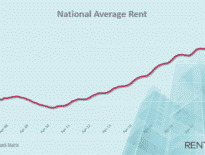By nearly any measure, the Massachusetts economy is booming. Thousands of jobs are being created and unemployment is at historic lows.
The flip side? Try finding a place to live that won’t break the budget.
The realities of a housing market where affordable homes, condos and apartments are increasingly hard to come by for middle- and low-income residents has prompted numerous proposals on Beacon Hill for spurring housing development. But so far, there’s no consensus.
Gov. Charlie Baker has proposed a bill, An Act to Promote Housing Choices, which would eliminate a century-old state law that requires a two-thirds vote of a municipality’s governmental body – city council or town meeting, for example – to authorize zoning changes needed to clear the way for new housing projects.
The supermajority requirement allows a vocal minority in any city or town to block otherwise worthwhile projects, critics contend. Similar legislation proposed last year came up short.
Many lawmakers argue Baker’s plan doesn’t go nearly far enough.
Democratic Sen. Jamie Eldridge, of Acton, pointed to a letter sent to the legislature in February in which the governor wrote his administration’s policies would put the state on track for creating 135,000 new housing units by 2025.
“The word ‘affordable’ is not in that sentence,” Eldridge said. “I think there is a fear that if we just change the zoning threshold from two-thirds to majority, you’re just going to find more luxury or high-end market rate housing and not affordable housing to make sure everyone in Massachusetts has a place to live.”
Eldridge has proposed a $500 million bond bill, financed by a real estate transfer tax, with half the proceeds set aside for public housing authorities and half for nonprofit developers of low-income housing.
Eldridge also wants to require wealthier towns to build affordable multifamily housing, acknowledging that well-to-do communities in his own suburban Senate district fail to do so.
Another bill gathering steam would abolish the supermajority vote for zoning changes, but includes several other provisions.
The legislation sets a goal of creating 427,000 new housing units by 2040, with 20 percent affordable for middle-income residents and 10 percent reserved for people with extremely low incomes. The measure also instructs local communities to zone for multifamily dwellings within a half-mile radius of bus, train or other public transit stops.
“Every day that goes by without action is a day that compounds this crisis,” said Democratic Rep. Andres Vargas, of Haverhill, who sponsored the bill with Rep. Kevin Honan, a Boston Democrat who co-chairs the housing panel.
It’s unclear when housing legislation might reach the House or Senate floor for debate, although Baker’s bill got a hearing before the Joint Committee on Housing on May 14..




 |
| 


